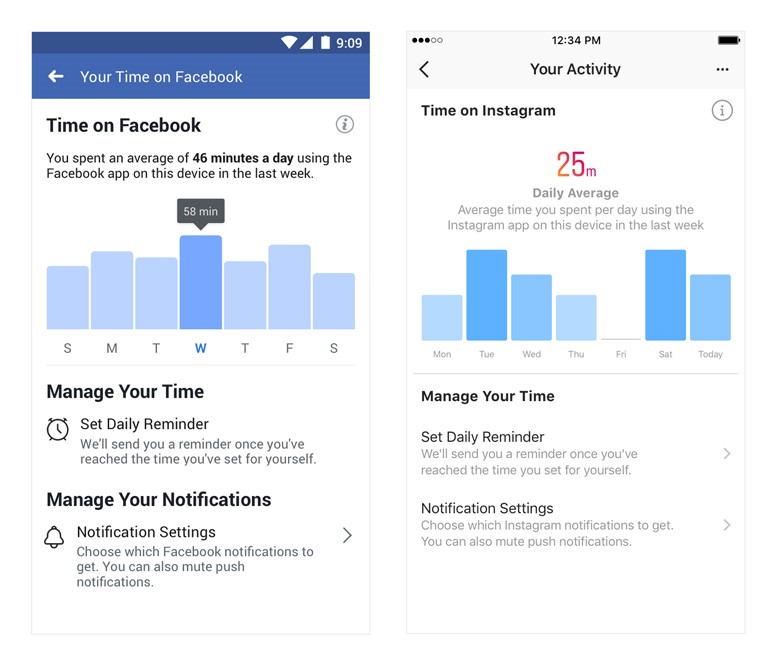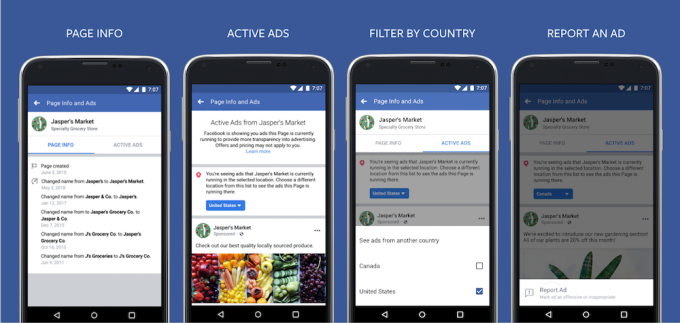Trending News
Taking Back Facebook – How New Tools Place Power Back in the Users’ Hands
In the fallout of the 2017 Cambridge Analytica scandal, in which a British political consulting firm utilized data mining tactics to inform electoral process ads, Mark Zuckerberg ensured that Facebook “feel[s] a responsibility to make sure our services aren’t just fun to use, but also good for people’s well-being.”
As noted in Zuckerberg’s address, Facebook made plans to put focus back on the meaningful personal interactions on which the site was built. Nearly eight months later, we can review many of these new features, and ask ourselves, how is the platform delivering transparency to users, and how does that affect the still burgeoning advertising landscape on Facebook?
Time Well Spent
Zuckerberg’s aforementioned address included an important recognition – he expected the amount of time individuals spend on the platform to decrease. True to his prediction, multiple tools have been created to manage one’s engagement with the Facebook app, in the form of “Your Time on Facebook,” and on Instagram, “Your Activity.” Facebook now allows individuals to track how much time they spend in the app. You can set a daily reminder to take a break from the platform and control your notification settings with a “Do Not Disturb” function which allows you to pick and choose which notifications you receive from your friends’ activity.
Similar to features offered on certain video game platforms, Facebook and Instagram are now committed to reminding all of us to break engagement for a period of time. However, it’s still a work in progress – Facebook has yet to integrate this new feature on desktop, or across devices, leaving the math to the individual to figure out how much time you’ve spent between your phone, tablet, and connected smart toaster. Fear not – Facebook does hope to integrate these over time.

Hit the Snooze Button
In a world that Zuckerberg himself feels “anxious and divided,” there’s a renewed focus to make sure you’re free to enjoy the contemporary “Time Well Spent” experience without the vitriol and argumentative nature many feel defines the modern Facebook experience. “Snooze Keywords” is a new option Facebook provides that lets you filter the types of discussions you no longer want to see, whether they are politically charged, entertainment spoilers, or carb-loaded recipes you want to avoid while on a keto diet.
Managing intrusion of this content on a top level (in other words, before one ever needs to interact with it) ensures that users can curate their experience in a way that makes Facebook more like a community they want to be a part of. It also presents an interesting landscape to those attempting to increase their reach – now playing in the sandbox requires an even higher level of mindfulness in what they present to audiences.
This “Ads” Up
Perhaps the greatest change to emerge from the new path Facebook is blazing, is in the form of the new “Ad Transparency” tool. Previously unavailable to targeted audiences, now anyone can see the rationale behind why an ad was served across Facebook. In addition, individuals can hold the brands they interact with accountable for the types of ads they deliver. All current ads are available under a brand or business page, giving a holistic view of their current Facebook marketing efforts, along with the goals that led to the creation of this campaign.
Again, the power has been given back to the decentralized userbase of the platform, driving a greater understanding of how the messages they view are relevant to them. Of course, this information is invaluable to the gatekeepers of this messaging, but it begs important questions for advertisers who still know that Facebook holds a walled garden of important data. We’re left asking, “how do marketers change their approach?”

Marketing Meaningfully
A Brave New World has been formed in the social landscape, and as marketers, it is important to remain vigilant in forming content that resonates with their target base. Social media presents a number of data-rich options, but no longer is it enough to develop lazy creative, set unclear goals, and most importantly, forget that Facebook is a community, not solely a marketplace. Brands still have a unique avenue to curate a dialogue with the people that purchase their products, attend their shows, or feed their families.
The trick is in the timing, realizing as individuals spend less time engaged with Facebook, we have limited time to impact them with something meaningful. As we soldier into the future and Facebook undergoes its next evolution, we must remember our focus is to foster meaningful interactions that bring empowered users together.